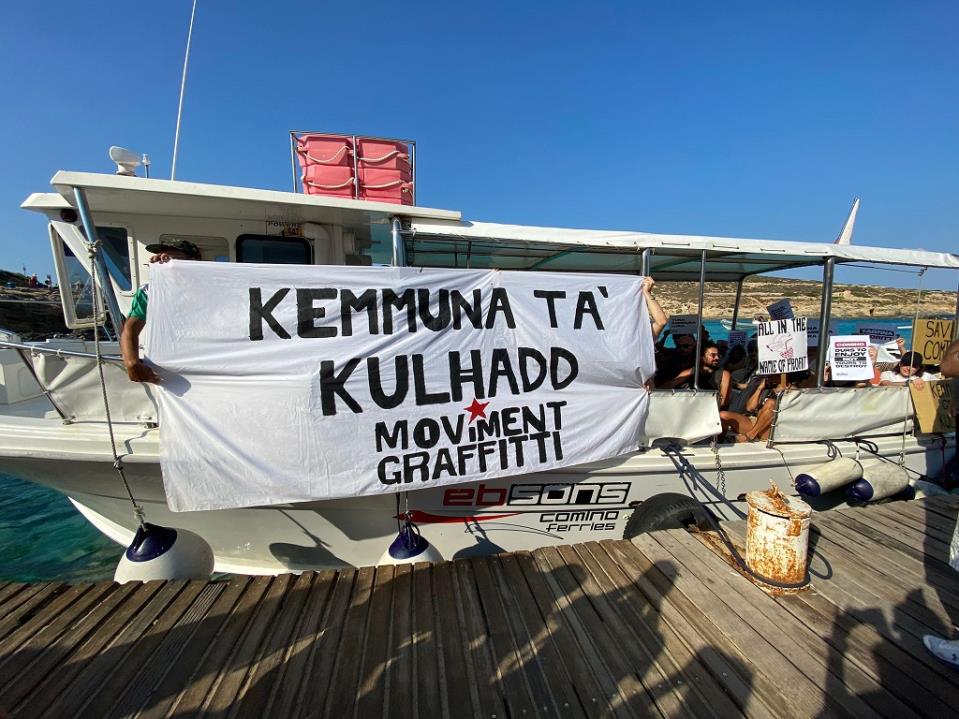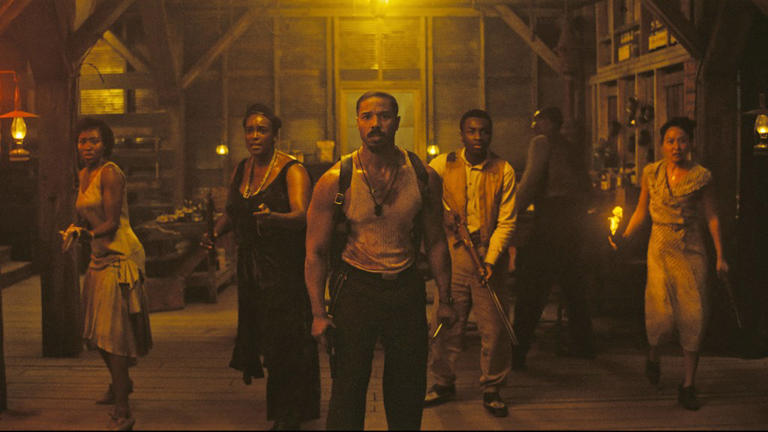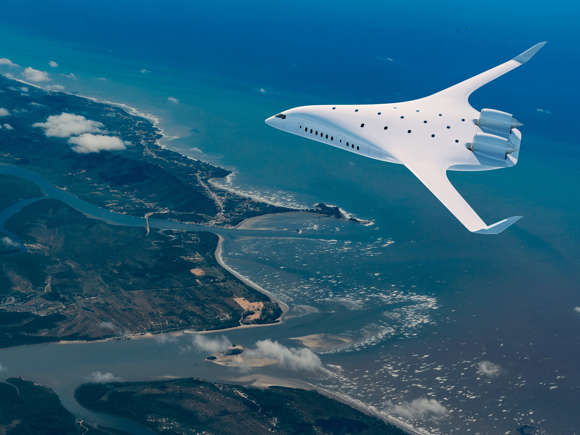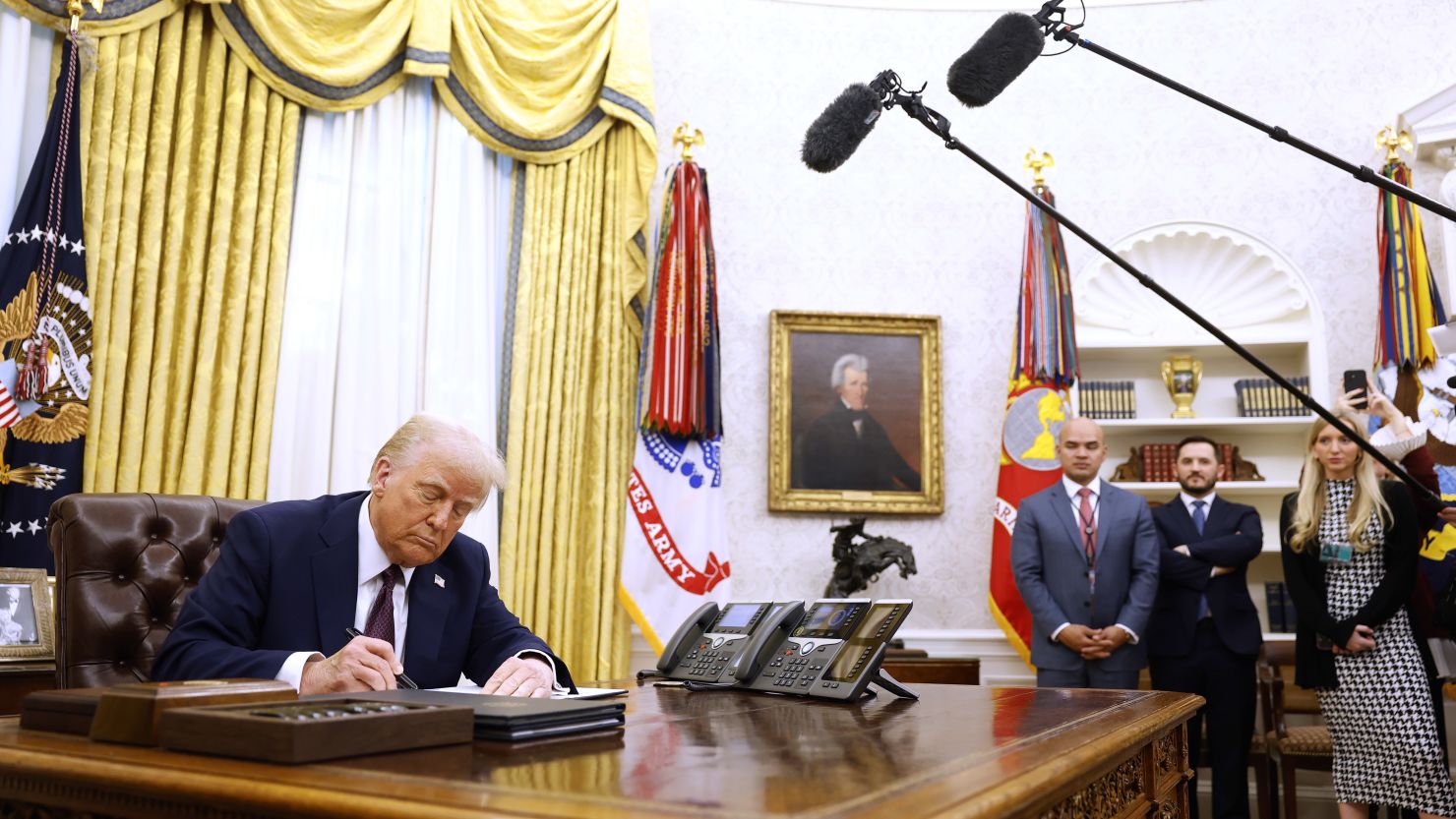
The Government’s plan of a fixed number pre-booked slots for entry at the Blue Lagoon is wrought with loopholes and purposefully misses the main culprits of Comino’s overexploitation – large tourist vessels, NGO Graffitti said Wednesday.
When, three years ago, Moviment Graffitti descended onto Blue Lagoon with a direct action, we made a concrete demand: Totally prohibit large tourist ferries from Comino.
This action would target large commercial operators, such as Zammit Tabona’s Captain Morgan operations, which actively ensnare tourists from the Sliema Ferries and Buġibba and unload them onto the Blue Lagoon in their thousands every day. Many of these tourists may not even have intended to visit the Blue Lagoon at all in the first place. Banning the operation of these vessels would have eliminated the need for a cap, the NGO said.
We reiterate our concern that imposing a cap risks it being capitalised by commercial operators at the cost of residents of the Maltese Islands who wish to travel to Comino. It is also amply clear that the proposed cap will likely translate to business-as-usual for these large vessel operators, continuing to offload hundreds of tourists to Blue Lagoon three times a day, each with their impacts of waste generation, pollution, noise, and trampling.
More worrying still is the continued resistance by the government to publish Comino’s carrying capacity study, the movement said. The entirety of Comino is a nature reserve, but government’s intentions do not seem to genuinely respect this since the cap they are proposing applies solely to the Blue Lagoon. Therefore, they are pushing tourist operators to increase their presence in other parts of the island to the detriment of the environment and of locals’ Comino experience. This is compounded by the recent approval by the Planning Authority of the redevelopment of the Comino Hotel, including the drastic increase of gross floor area and commercial activity at Santa Marija Bay, with the proposal of a jetty and restaurant.
Moreover, Blue Lagoon’s pre-booking system includes the provision for 4,000 people to be at the Blue Lagoon between 8pm and 10pm every day. Allowing this activity on a nature reserve beyond sunset, given the sensitivity of the site, does not bode well for the integrity of Comino’s biodiversity.
Government’s weak hand in the face of big business and close ties with certain commercial entities on Comino is evident for all to see. Minister Ian Borg is selling our common heritage to business empires and taking the public for a ride, Graffitti said.
The Gozo Tourism Association (GTA) also commented on the measures, saying that from the outset, both the Gozo Tourism Association and the commercial vessel operators to Blue Lagoon, all members of the Association, have consistently expressed their support for better management of tourism activity in Blue Lagoon and Comino.
All recognise the need for a wellstructured and sustainable approach to address long-standing challenges in the area and are in favour of initiatives that improve the overall visitor experience while safeguarding the natural environment. Over the past two months, representatives of the GTA and the commercial vessel operators participated in two consultation meetings with the Ministry for Tourism to discuss the proposed measures, the association said.
During these meetings, operators voiced several concerns and put forward constructive, experience-driven recommendations, particularly focused on easing congestion in the Blue Lagoon and advocating for visitor caps to apply solely to tourists, and not local residents. Despite expressing a clear willingness to continue the dialogue and contribute further proposals, no formal response has been received to date, and it appears that the feedback provided has not been incorporated in the final implementation plan.
One of the primary concerns expressed relates to the newly introduced ticketing system. Operators believe that the system does not create a level playing field, as it allocates and ringfences landing slots to specific categories of operators, the association said. This is seen as discriminatory and detrimental to fair competition in the sector. Additionally, another concern is the rushed implementation of the system as such a significant operational change cannot be realistically introduced within a two-month timeframe.
A transitional period is essential to enable operators to adjust schedules, restructure logistics, and adequately inform international partners and clients of the changes. Introducing these measures just ahead of the peak summer season, when most operators have already commenced services and accepted pre-bookings, is expected to cause significant disruption, confusion, and logistical challenges.
Such abrupt changes pose a serious risk of financial strain for operators, the association said. As tourism is a forward-planning industry, abrupt changes of this nature risk negatively impacting both the operator experience and the overall reputation of the destination.
The Gozo Tourism Association and its member operators reaffirmed their commitment to maintaining a constructive dialogue with the Ministry for Tourism. Our shared goal remains to achieve a balanced practical implementation of the management system – one that promotes long term sustainability while ensuring fairness for all stakeholders.












